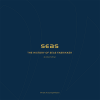Philosophy and Biblical Interpretation: A Study in Nineteenth-Century Conflict
This study explores the nature of the conflict between science and religion. It shows through a detailed examination of this conflict as it was manifested in nineteenth century Britain that religion and science, properly understood, cannot co-exist in mutual harmony. The legacy of their conflict in the last century has been passed on to the twentieth century, greatly to the detriment of religious belief. It is the author\'s contention that a return to the essentials of Kant\'s critical philosophy would lay bare the profound differences between religious and scientific approaches to the world, and the nature of the choice to be made between them. In its effort to demarcate the outlines of a genuine biblical theology (and to articulate the proper procedures for producing one) the book casts light on important questions of biblical interpretation, and demands a radical reassessment of the meaning of science for society.
• A book which puts forward a powerful and original case, arguing that most of Britain\'s difficulties in reconciling natural philosophy (as science) and religion could have beebn avoided if people had paid closer attention to Kant. • Will appeal to all those interested in the history of ideas and in the meaning and significance of religion • A controversial book which should attract a good deal of attention from reivewers.
ContentsPreface Introduction 1. The general picture 2. David Hume 3. William Paley 4. Biblical conservatism 5. Conservative Natural Theology: Paley\'s design argument 6. Conservative Natural Theology: Thomas Chalmers 7. Liberal Natural Theology 8. The later nineteenth century 9. Immanuel Kant 10. Critical philosophy and the Bible Conclusion Notes Bibliography Index
- Forlag: Cambridge University Press
- Utgivelsesår: 1991
- Kategori: Filosofi
- Lagerstatus: Ikke på lagerVarsle meg når denne kommer på lager
- Antall sider: 342
- ISBN: 9780521404235
- Innbinding: Innbundet











